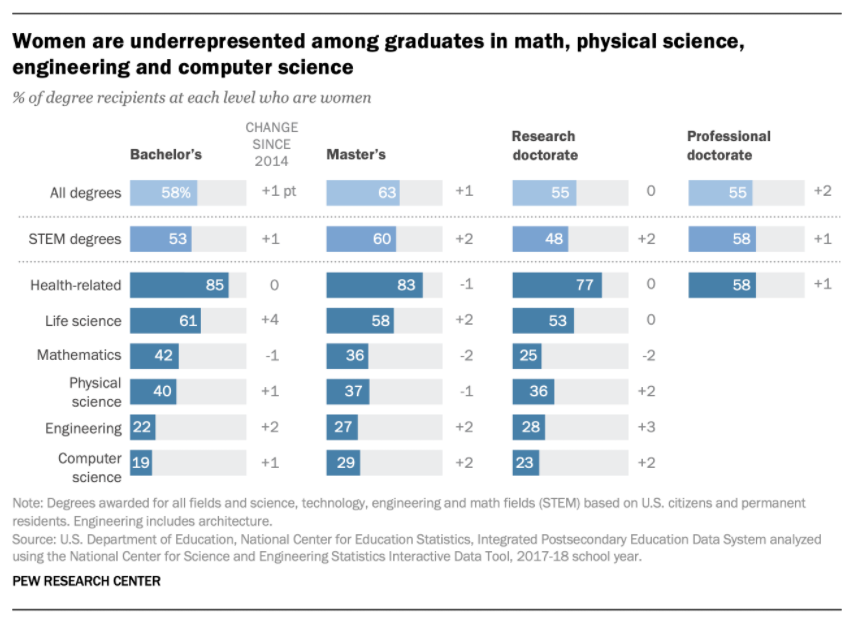Edmonton celebrated its women entrepreneurs — let’s work to give all women the same opportunitiesBy Joel Magalnick Edited by Aaron Budnick COVID-19 has certainly been tough for everyone. It interrupted best-laid plans, turned our worlds upside down, and created uncertainty that will have a generational impact, in particular on women and minorities. According to a study by Statistics Canada, between March and October 2020, 46% of people in Canada with incomes lower than $40,000 lost income compared to 27% of Canadians with incomes over $40,000. Many people in those lower income strata are women. So what can we as an innovation community do to let in the women who have otherwise been unable to find support that can lead to reasonable chances of success? “Women have traditionally borne greater responsibility for child care and other domestic duties than men and these responsibilities may be exacerbated by the current environment, particularly with school closures and reduced availability of social services, such as child care and eldercare,” the Statistics Canada report noted. Even as in-person school resumed in September in many communities, “70% of mothers reported that they worked less than half their usual hours compared with September 2019.” Layna Haley, executive director of the Kaleo Collective, an Edmonton-based nonprofit that serves single mothers and their children, told us that she sees these statistics play out on a daily basis. “Pretty early on, women were able to keep their jobs,” Layna said. “But as the pandemic went on, companies started to downsize or reduce hours or eliminate positions completely.” That of course created further financial insecurity and the competition for available jobs has increased—with employment often going to employees without, as Layna noted, “the added pressure of having to be able to be more flexible in her work life, particularly if childcare becomes an issue like when children were taken out of school again.” We as a community need to model the camaraderie we’ve developed among us to continue to open up opportunities for women and minorities to enter the innovation economy. We’re seeing it already through programs like Ladies Learning Code at Startup Edmonton, for example, but at the same time we need to make room for people in difficult situations not only as a point of entry but as voices that make us think differently. Our economies are strongest when everyone is given an equitable opportunity to take risks, or test innovative new ideas or ways of doing things. That said, we do have something to celebrate. Recently, a group of local entrepreneurs took it upon themselves to establish and build Edmonton’s first Startup Community Awards. What’s most notable is the representation of women who led the list of winners. In particular, (and somewhat selfishly), we’d like to highlight the Volunteer of the Year. Gail Powley is a member of the Rainforest Steering Committee and a tireless advocate and champion of the innovation ecosystem. Though Gail graciously gives her time to us, she also gives so much to other community initiatives including the Edmonton Regional Innovation Network, the University of Alberta, and TechnologyAlberta where she lead the creation and execution of their FIRST Jobs Program. As a chemical engineer herself, Gail is also a tireless advocate for bringing women into scientific careers.
Other particularly notable winners of the awards include Community Champion of the Year Ashlyn Bernier for her work with EACOS, Laurie Wang as Connector of the Year for her role modelling this important and often undervalued skillset and seasoned leaders such as Myrna Bittner from RunWithIt Synthetics, who won Most Edmonton Startup of the Year. Incidentally, 70% of RunWithIt’s staff consists of women, many of whom are also Black and Indigenous as well. Finally, we should recognize Kristina Milke as Mentor of the Year. None of us can be truly successful without great mentors like Kristina to help make the unknown known and prevent the avoidable. There’s still plenty of work to be done, but upskilling and technology training programs can help to bring disadvantaged populations to a place where they contribute to and even lead—if we work to actively open those opportunities. “I feel like there is a path forward there and more flexibility to do your studies at night when [children are] sleeping or to do it if they're in school,” said Layna. “To be able to work from home, to learn from home, has been an advantage right now.” It’s a good sign of progress toward a more equitable society and ecosystem that helps to create opportunity for anyone, from any background, to prosper right here in Alberta. But we’ve still got a long way to go.
0 Comments
Leave a Reply. |
AuthorWrite something about yourself. No need to be fancy, just an overview. Archives
September 2021
Categories |



 RSS Feed
RSS Feed
